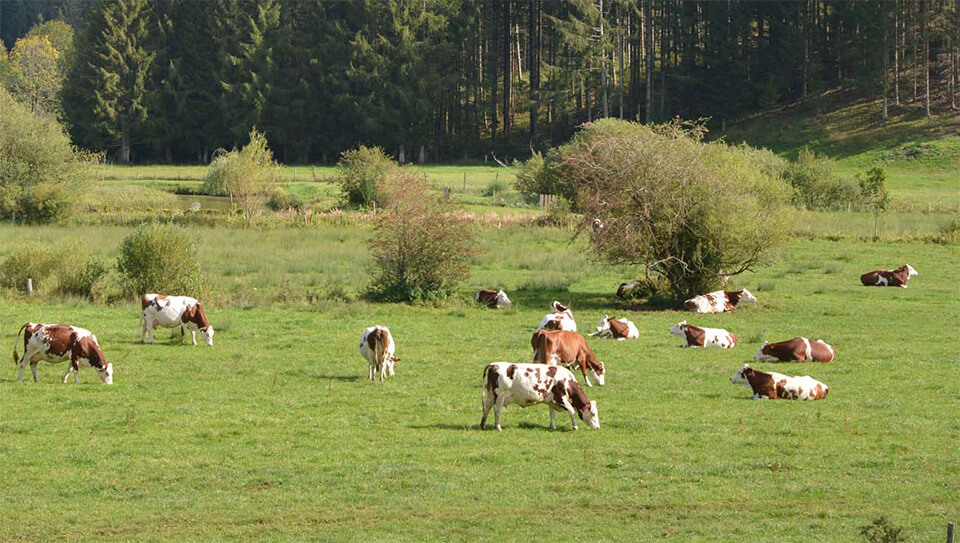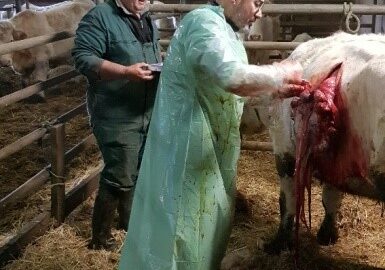Dysregulated inflammatory response versus immunosuppression in BRD

Auteurs
Résumé
Bovine respiratory disease (BRD), a common cause of illness and death in calves and cattle, is a disease complex resulting from multiple factors. BRD occurs when cattle at increased risk of disease due to management practices and host-related factors are infected by one or more viral or bacterial respiratory pathogens. Historically, host-related factors considered to be most relevant to increased BRD risk have been 1) lack of immune memory to infection by respiratory pathogens, and/or 2) transient immunosuppression by endogenous corticosteroids released following stressful events such as transport, or mixing of cattle from multiple sources. It is certainly true that cattle with no immune memory to respiratory viruses or bacteria are more likely to be infected and develop respiratory disease, compared to cattle with immune memory. Additionally, research has shown that stressful events can change the molecular environment in the respiratory tract in ways that can lead to pathology, even in the absence of infection. However, some calves or cattle with no immune memory nevertheless stay healthy when they are exposed to infection or stressful events, and this observation has led to research investigating the differences between at-risk cattle that develop BRD and at-risk cattle that stay healthy. Preliminary results indicate that lipid mediators that promote resolution of inflammation, the «specific pro-resolving mediators » (SPM), may contribute importantly to BRD resistance in cattle that appear to be at high risk of BRD. Recently weaned beef cattle that have been transported and mixed with cattle from multiple sources, but which do not develop BRD, have been found to express enzymes that activate SPM production at higher levels than cattle in the same group that go on to develop BRD. These findings suggest that, in at least some populations of cattle, the ability to resolve the inflammatory process in a timely manner is important for respiratory health. One must note that pro-resolving pathways are not the same as the anti-inflammatory pathways activated by nonsteroidal anti-inflammatory drugs or exogenous corticosteroids; therefore, treatment with these medications does not appear to be appropriate for activating SPM. More research is necessary to confirm the role of SPM in resistance to BRD, and to determine whether any management, genetic, or therapeutic mechanisms can be used to leverage beneficial effects of SPM in cattle.
D'autres articles
Découvrez aussi nos formations
05 janvier 2026
5 jours
Bovin laitier · Bovin viande · Bovins


